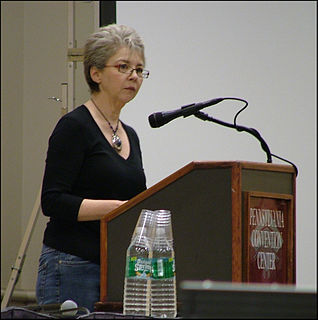A Quote by John F. Kennedy
The United States, as the world knows, will never start a war. We do not want a war. We do not now expect a war. This generation of Americans has already had enough - more than enough - of war and hate and oppression. We shall be prepared if others wish it. We shall be alert to try to stop it. But we shall also do our part to build a world of peace where the weak are safe and the strong are just. We are not helpless before that task or hopeless of its success. Confident and unafraid, we labor on - not toward a strategy of annihilation but toward a strategy of peace.
Quote Topics
Alert
Also
Annihilation
Be Prepared
Before
Build
Confident
Enough
Expect
Generation
Had
Had Enough
Hate
Helpless
Hopeless
Just
Knows
Labor
More
Never
Now
Oppression
Others
Our
Part
Peace
Prepared
Safe
Shall
Start
States
Stop
Strategy
Strong
Success
Task
Than
This Generation
Toward
Try
Unafraid
United
United States
Want
War
Weak
Will
Wish
World
Related Quotes
If we are to reach real peace in this world and if we are to carry on a real war against war, we shall have to begin with children; and if they will grow up in their natural innocence, we won't have to struggle; we won't have to pass fruitless idle resolutions, but we shall go from love to love and peace to peace, until at last all the corners of the world are covered with that peace and love for which consciously or unconsciously the whole world is hungering.
The twentieth century had dispensed with the formal declaration of war and introduced the fifth column, sabotage, cold war, and war by proxy, but that was only the begining. Summit meetings for disarmament pursued mutual understanding and a balance of power but were also held to learn the strengths and weaknesses of the enemy. The world of the war-or-peace alternative became a world in which war was peace and peace war.
No power but Congress can declare war; but what is the value of this constitutional provision, if the President of his own authority may make such military movements as must bring on war? ... [T]hese remarks originate purely in a desire to maintain the powers of government as they are established by the Constitution between the different departments, and hope that, whether we have conquests or no conquests, war or no war, peace or no peace, we shall yet preserve, in its integrity and strength, the Constitution of the United States.
Unlike the authors of such warrior classics as The Art of War and The Book of the Five Rings, which accept the inevitability of war and emphasize cunning strategy as a means to victory, Morihei understood that continued fighting-with others, with ourselves, and with the environment-will ruin the earth. “The world will continue to change dramatically, but fighting and war can destroy us utterly. What we need now are techniques of harmony, not those of contention. The Art of Peace is required, not the Art of War.
At the beginning of World War II the U.S. had a mere 600 or so first-class fighting aircraft. We rapidly overcame this short supply by turning out more than 90,000 planes a year. The question at the start of World War II was: Do we have enough funds to produce the required implements of war? The answer was No, we did not have enough money, nor did we have enough gold; but we did have more than enough resources. It was the available resources that enabled the US to achieve the high production and efficiency required to win the war. Unfortunately this is only considered in times of war.
You have not been mistaken in supposing my views and feeling to be in favor of the abolition of war. Of my dispos[i]tion to maintain peace until its condition shall be made less tolerable than that of war itself, the world has had proofs, and more, perhaps, than it has approved. I hope it is practicable, by improving the mind and morals of society, to lessen the dispos[i]tion to war; but of its abolition I despair.































